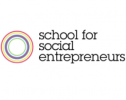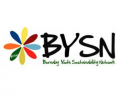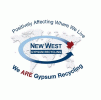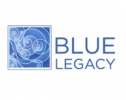Blog Post: Building Community: Young Adults Town Hall Report
Building Community: Young Adults Town Hall Report
By: Jenny Peng
On October 15th I hosted a Young Adults Town Hall Meeting at the Collingwood Neighbourhood House in which young adults living in the Renfrew-Collingwood community participated in a forum in which they shared their own experiences living in the neighbourhood.
When I began envisioning the town hall meeting I wanted to hold I thought long and hard about how I could use this opportunity to give back to the community. I chose a range of discussion topics like language as an obstacle for ESL individuals to being more active residents, and the types of discrimination a person with a disability faces. Throughout the planning stages, I was warned of a possible low participation rate from young adults so I began mentally preparing myself; sometimes I would cringe in private at the thought of it being a complete failure. But as a resident of Renfrew-Collingwood for six years I knew, without a doubt, it had to be done. Nothing like it has ever been done and yet there is a large population of young adults living here. If I felt a sense of isolation from my neighbours then there must be at least one other person who feels the same way. So I planned the meeting for that one other person, and four people responded to my one-woman promotional effort. That’s a 400% success rate! Here are the key highlights from our meeting.
We began by acknowledging the sense of isolation in the neighbourhood was different from what was the norm in other places and countries we previously lived in such as Israel, Iran and Taiwan. Kris observed a resistance to individuals who want to make connections with others and build relationships. To overcome that initial low comfort level there needs to be a context in which people work together on a specific cause, or share a common activity. This need for “context” turns out to be limited to the North American culture. Peiman who previously lived in Iran says “There’s a limit [for us] to communicate with people [in this community]. There’s some parts you can’t talk about at all. Compared to Iran, in a neighbourhood, you almost know everybody. What their job is, when they come home, when they go out. Sometimes hang out together outside the house. Whenever we see each other we stand by and have a little chat. But here, whenever I say “hi” to my neighbor they say “hi” and then they go back [to what they were doing before]. “We both agree that there is an urge to go a step further in communicating with our neighbours but he notes that “When I don’t see other people doing it, I think maybe it is [considered] a rude thing here.” Stephanie adds that this leads feelings of loneliness.
Drawing upon his personal experience as a recent resident to Canada, I asked Peiman on how English as a second language creates a barrier to community involvement. He stresses that it is a big obstacle for ESL individuals because, “when you don’t have the language, it causes you to be more shy to speak with others and express yourself. And also, you can’t tell me what you mean—how you can help them. In every situation language is the first thing. It’s the first thing you need to help other people…If you don’t have it completely, it’s the first problem. Even if you have enough to communicate with others you feel shy then. But if you do try to speak with others it’s really good—I improved my English really fast here because I have been involved in the community.” He notes that it is especially important to make it comfortable for ESL individuals to express themselves in group environments.
Next, the group discussed the observation that for young adults community involvement is the exception rather than the rule. Kris highlighted his Baha’i faith as a compelling force in being more active in seeking opportunities for personal growth. When I asked him whether his faith was a factor in choosing to participate in the meeting he shared with us that one of the guiding principle in the Baha’i faith is to see that “individual development and societal development cannot be separated. Both have to go with one another.” He adds, “that is why it is so important for people to realize that if they want to improve themselves they also have to be contributing to the advancement of their community. All of it has to go hand in hand.”
Lastly, as the meeting was winding down, I took advantage of Stephanie’s presence and asked her on how she felt about being a person with a mental disability in the community. With openness and honesty she noted that discrimination of people with disabilities came in a subtler form. Sometimes she would be treated “like a child” instead of the woman she is.
By the end of the meeting I was uplifted from having met inspirational individuals that shared their experiences with me and viewers of RCC News. I would like to thank them as well as Sanjeev Karwal, Jason Hsieh, Const. Heather Brown, Julie Cheng and Derek Yan for their generosity and support.
Category:


































